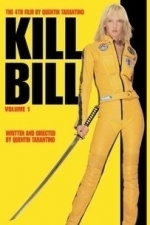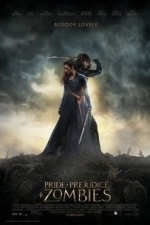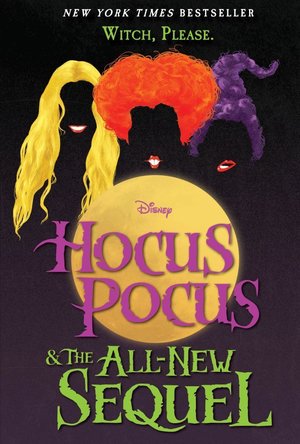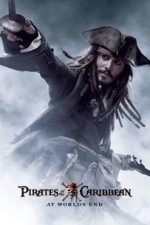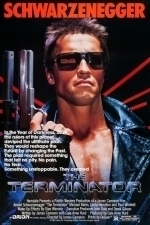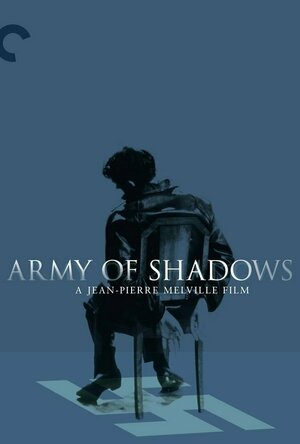Search
Search results
Phillip McSween (751 KP) rated Kill Bill: Volume 1 (2003) in Movies
Nov 12, 2020
Bloody Brilliant
A woman seeks revenge on the man that tried to kill her along with his gang of deadly assassins. Director Quentin Tarantino is known for producing masterpieces and this is definitely one of his finest.
Acting: 10
Beginning: 10
Talk about a movie that sucks you in right from the very beginning. The opening scene is jarring and so amazing. I was anxious and excited to see what would happen next.
Characters: 10
Cinematography/Visuals: 10
The cinematic appeal of Kill Bill Volume 1 is out of this world. The fight scenes are shot with flare and an intensity that ramps as each battle works towards the climax. I love how daring Tarantino is, even incorporating animated scenes to flesh out the story. One of my favorite moments is the main character’s final showdown against an assassin shot against the backdrop of a snowy landscape in Japan. It’s so incredibly beautiful, even as droplets of blood spatter against the snow.
Conflict: 10
Entertainment Value: 10
Captivating from beginning to end. This is why we watch movies. There was never a dull moment as intensity lingers around every corner. The entertainment comes from a combination of conflict and sheer originality. As you sit there, you realize you are seeing something you have never seen before. I loved every minute of it.
Memorability: 10
Tarantino operates with the flare of a man who has been there and done that. I appreciate the fact that he’s not afraid to try new things. As a result, we get something new in every single scene. It’s brilliant how all the puzzle pieces come together. We think we are watching something simple and straightforward, but it ends up being amazingly intricate.
Pace: 10
Plot: 10
Resolution: 10
You already know going in there’s going to be a sequel as the title indicates. But this movie wraps up quite nicely with a beautiful cliffhanger that gets you stoked for the sequel. No matter how many times I’ve watched this movie, the ending always pushes me into watching the sequel right after. Not many movies can say that.
Overall: 100
I’m not saying this lightly: Kill Bill Volume 1 is one of the greatest movies ever made. See it. I’ll end it there.
Acting: 10
Beginning: 10
Talk about a movie that sucks you in right from the very beginning. The opening scene is jarring and so amazing. I was anxious and excited to see what would happen next.
Characters: 10
Cinematography/Visuals: 10
The cinematic appeal of Kill Bill Volume 1 is out of this world. The fight scenes are shot with flare and an intensity that ramps as each battle works towards the climax. I love how daring Tarantino is, even incorporating animated scenes to flesh out the story. One of my favorite moments is the main character’s final showdown against an assassin shot against the backdrop of a snowy landscape in Japan. It’s so incredibly beautiful, even as droplets of blood spatter against the snow.
Conflict: 10
Entertainment Value: 10
Captivating from beginning to end. This is why we watch movies. There was never a dull moment as intensity lingers around every corner. The entertainment comes from a combination of conflict and sheer originality. As you sit there, you realize you are seeing something you have never seen before. I loved every minute of it.
Memorability: 10
Tarantino operates with the flare of a man who has been there and done that. I appreciate the fact that he’s not afraid to try new things. As a result, we get something new in every single scene. It’s brilliant how all the puzzle pieces come together. We think we are watching something simple and straightforward, but it ends up being amazingly intricate.
Pace: 10
Plot: 10
Resolution: 10
You already know going in there’s going to be a sequel as the title indicates. But this movie wraps up quite nicely with a beautiful cliffhanger that gets you stoked for the sequel. No matter how many times I’ve watched this movie, the ending always pushes me into watching the sequel right after. Not many movies can say that.
Overall: 100
I’m not saying this lightly: Kill Bill Volume 1 is one of the greatest movies ever made. See it. I’ll end it there.

iStopMotion for iPad
Photo & Video and Education
App
*** Winner Macworld Best of Show 2013 *** *** Winner Macworld Best of Show 2012 and Mac Observer...

iKamasutra® - Sex Positions from Kama Sutra and beyond Kamasutra
Lifestyle and Reference
App
Find out what over 20 million lovers—including editors from Cosmopolitan and Wired—are all...
Gareth von Kallenbach (980 KP) rated Pride and Prejudice and Zombies (2016) in Movies
Aug 6, 2019
As a fan of the Pride and Prejudice book by Jane Austen, I thought it was all kinds of wrong when I came across the parody novel Pride and Prejudice and Zombies, by Seth Grahame-Smith, that essentially Austen’s classic novel with elements of modern zombie fiction. Mainly because I’m not a fan of horror movies. So as we approached the theater where we were screening Pride and Prejudice and Zombies, I told my husband, “I really don’t want to watch this. I hate zombies.” He just laughed. “You hate zombies, but you watch Walking Dead. Just pretend it’s an episode of Walking dead. Just set near the Victorian era.” I admit, I do watch the Walking Dead but it’s the most stressful hour of television for me, and there are commercial breaks. This movie has a running time for this move was almost 2 hrs with no commercials.
But the movie got a giggle out of me in the first 5 minutes. And of course it made me gasp not long after. But Walking Dead has trained me well, and it wasn’t too long ago that I watched Hateful Eight, so I think I’m quite desensitized to blood and gore now, and in comparison, PPZ was relatively mild in that regard. It also had enough of the elements of the original story that fighting zombies actually became an entertaining digression. You know – beautiful young ladies, dashing young men, ballroom dancing, budding romance, zombie attack.
“To succeed in polite society, a young woman must be many things. Kind… well-read… and accomplished. But to survive in the world as WE know it, you’ll need… other qualities.” Those qualities include being skilled in the martial arts and weapons training, while wearing a corset –essentially making them Regency era bad-asses.
Because I don’t watch Downton Abbey, the last time I saw Lily James, who plays Elizabeth Bennett, she was brilliantly blond and sweetly keeping her promise to her mother to “have courage and be kind.” as Cinderella. In PPZ, she’s a fierce brunette who doesn’t take too kindly to Fitzwilliam Darcy, played by a sullen and haughty Sam Riley – another Disney alum, last seen as Diaval, Maleficent’s companion raven.
Where the Jane Austen’s Mr. Darcy is won over by Elizbeth’s charm and wit, PPZ’s Darcy is slowly won over by Elizabeth’s aggressive and bold battle skills. Adding the alternate history of how zombies came to be a part of Regency era England hurried the story along, so the romantic developments felt a bit rushed, but Riley’s Darcy was quite believable in his reluctant but growing admiration of Elizabeth.
I was pleasantly surprised by how much I enjoyed this movie, zombies and all. When you can get guys to cheer for some undead’s head getting blown off, and still make the ladies sigh for the romance, you have a pretty perfect date movie. It may very well be my favorite period costume romantic zombie action film.
But the movie got a giggle out of me in the first 5 minutes. And of course it made me gasp not long after. But Walking Dead has trained me well, and it wasn’t too long ago that I watched Hateful Eight, so I think I’m quite desensitized to blood and gore now, and in comparison, PPZ was relatively mild in that regard. It also had enough of the elements of the original story that fighting zombies actually became an entertaining digression. You know – beautiful young ladies, dashing young men, ballroom dancing, budding romance, zombie attack.
“To succeed in polite society, a young woman must be many things. Kind… well-read… and accomplished. But to survive in the world as WE know it, you’ll need… other qualities.” Those qualities include being skilled in the martial arts and weapons training, while wearing a corset –essentially making them Regency era bad-asses.
Because I don’t watch Downton Abbey, the last time I saw Lily James, who plays Elizabeth Bennett, she was brilliantly blond and sweetly keeping her promise to her mother to “have courage and be kind.” as Cinderella. In PPZ, she’s a fierce brunette who doesn’t take too kindly to Fitzwilliam Darcy, played by a sullen and haughty Sam Riley – another Disney alum, last seen as Diaval, Maleficent’s companion raven.
Where the Jane Austen’s Mr. Darcy is won over by Elizbeth’s charm and wit, PPZ’s Darcy is slowly won over by Elizabeth’s aggressive and bold battle skills. Adding the alternate history of how zombies came to be a part of Regency era England hurried the story along, so the romantic developments felt a bit rushed, but Riley’s Darcy was quite believable in his reluctant but growing admiration of Elizabeth.
I was pleasantly surprised by how much I enjoyed this movie, zombies and all. When you can get guys to cheer for some undead’s head getting blown off, and still make the ladies sigh for the romance, you have a pretty perfect date movie. It may very well be my favorite period costume romantic zombie action film.
Maris (8 KP) rated Hocus Pocus and the All-New Sequel in Books
Jun 10, 2019
I can not tell you how disappointing this book was. Everything from the start of the sequel to the very end. I almost DNF the book, but since this is a sequel to one of my favorite Halloween movies as a child I wanted to finish the story. I knew it wasn't going to get better.
The beginning of the book is just a recap from the movie with more knowledge of the characters feelings and a little bit more about the Sanderson sisters. I'm pretty bummed out that the author left out my favorite scene from the movie which was when the kids ran up to the cop who really wasn't a cop! I just think that part should have been put into the book.
Once you get to the sequel its 25 years later on Halloween day in Salem. Max and Allison have a daughter named Poppy. I'm curious to why the author wanted the daughter name Poppy when everyone else has normal names like the author wanted the character to stand out more? Poppy has two close friends, Isabella and Travis. Poppy has a crush on her friend Isabella, and Travis who looks out for Poppy helping her with school, and social life with the other kids when Poppy seems to be getting attacked by others.
To sum it up without giving away to much of the story, Poppy doesn't believe in her parents or her Aunt Dani's story about Sanderson's sister when they were kids. Poppy, Isabella, and Travis head to the Sanderson's house and pretty much did exactly what her parents did 25 years ago minus the black candle.
It seems to me the author tried too hard to make this sequel to be better or equal to the first Hocus Pocus that she was adding too much of the same stuff from the first story. I didn't like the same jokes and it wasn't nearly as funny. The story was just too much for me and didn't have enough originality for me. One thing that was irritating was that Sarah Sanderson would say Amok Amok Amok in the first story than with the sequel she always seems to be repeating herself with words like Afoot and such.
You do get to read some familiar characters from the first story which was nice. There is a new character named Elizabeth who is Winnie, Mary, and Sarah's sister. I honestly didn't think it was necessary to add another witch to the famous Sanderson witches.
All in all this story wasn't it for me. Like I said I'm pretty bummed out about it. I couldn't get into the story, everything just seemed forced together and that the author was trying to hard to make this story stand out.
The beginning of the book is just a recap from the movie with more knowledge of the characters feelings and a little bit more about the Sanderson sisters. I'm pretty bummed out that the author left out my favorite scene from the movie which was when the kids ran up to the cop who really wasn't a cop! I just think that part should have been put into the book.
Once you get to the sequel its 25 years later on Halloween day in Salem. Max and Allison have a daughter named Poppy. I'm curious to why the author wanted the daughter name Poppy when everyone else has normal names like the author wanted the character to stand out more? Poppy has two close friends, Isabella and Travis. Poppy has a crush on her friend Isabella, and Travis who looks out for Poppy helping her with school, and social life with the other kids when Poppy seems to be getting attacked by others.
To sum it up without giving away to much of the story, Poppy doesn't believe in her parents or her Aunt Dani's story about Sanderson's sister when they were kids. Poppy, Isabella, and Travis head to the Sanderson's house and pretty much did exactly what her parents did 25 years ago minus the black candle.
It seems to me the author tried too hard to make this sequel to be better or equal to the first Hocus Pocus that she was adding too much of the same stuff from the first story. I didn't like the same jokes and it wasn't nearly as funny. The story was just too much for me and didn't have enough originality for me. One thing that was irritating was that Sarah Sanderson would say Amok Amok Amok in the first story than with the sequel she always seems to be repeating herself with words like Afoot and such.
You do get to read some familiar characters from the first story which was nice. There is a new character named Elizabeth who is Winnie, Mary, and Sarah's sister. I honestly didn't think it was necessary to add another witch to the famous Sanderson witches.
All in all this story wasn't it for me. Like I said I'm pretty bummed out about it. I couldn't get into the story, everything just seemed forced together and that the author was trying to hard to make this story stand out.

Kung Fu Panda 2 Storybook
Book and Education
App
★ #1 in Books (iPhone) - May 2011 ★ #2 in Books (iPad) - May 2011 ★ Featured in What's Hot...
Matthew Krueger (10051 KP) rated Pirates of the Caribbean: At Worlds End (2007) in Movies
Nov 20, 2019
Drunk Johnny Part 3
This one, this one is my favorite out of all of them. Let my explain, this one ends the trilogy, this one continues off from the second movie and does it excellently. This one has the most epic battle out of all the movies, this one you see the chacters at their best, you see them at their peak, you see them battle for their lives. You see Keith Richards in this one, wait what? Yes you read that correctly, Keith Richards is in this one and he plays as Captain Jack Sparrow's Father, of course he does. Cause Johnny Depp is playing a drunk verison of pirate Keith Richard's. Anyways the plot:
Will Turner (Orlando Bloom) and Elizabeth Swann (Keira Knightley) join forces with Capt. Barbossa (Geoffrey Rush) to free Jack Sparrow (Johnny Depp) from Davy Jones' locker. Meanwhile, the crew of the Flying Dutchman ghost ship wreaks havoc on the Seven Seas. The friends must navigate dangerous waters to confront Chinese pirate Sao Feng (Chow Yun-Fat) and, ultimately, they must choose sides in a battle where
in the pirate life hangs in the balance.
At World's End is the pefect title for a perfect trilogy and should of ending with this one, but nope had to make two more after this one.
Will Turner (Orlando Bloom) and Elizabeth Swann (Keira Knightley) join forces with Capt. Barbossa (Geoffrey Rush) to free Jack Sparrow (Johnny Depp) from Davy Jones' locker. Meanwhile, the crew of the Flying Dutchman ghost ship wreaks havoc on the Seven Seas. The friends must navigate dangerous waters to confront Chinese pirate Sao Feng (Chow Yun-Fat) and, ultimately, they must choose sides in a battle where
in the pirate life hangs in the balance.
At World's End is the pefect title for a perfect trilogy and should of ending with this one, but nope had to make two more after this one.
